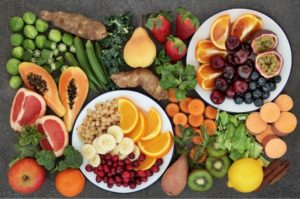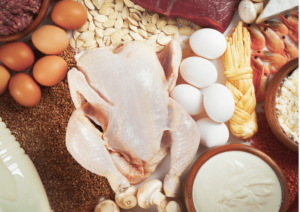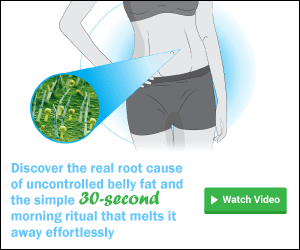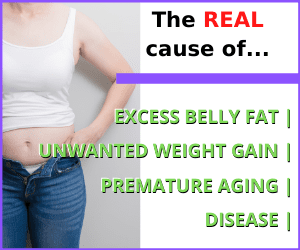LOSE WEIGHT & BALANCE YOUR HORMONES: Visit or call 855-I-LUV-B3H (855-458-8234) to schedule your consultation NOW!
With Dr. Kealy's Balance 3H Plus® weight loss program for menopausal women, you will burn fat, lose weight, increase your metabolism & MORE…FAST!
Our scientifically-backed Health 365 biomarker blood test will determine which hormones are influencing your middle age weight gain. Our expert nutritionists will then create a program completely customized to your body's needs!
Balance 3H Plus® – Doctor Created Medically Supervised Weight Loss for Women 40+
The goal of this blog post is to provide women with the information they need to make an informed decision about their weight loss diet. There are many different diets out there, each claiming to be best for different people. The truth is that every person's body is unique and what works for one person may not work for another. This article will discuss some of the most popular medical weight loss diets geared towards peri/menopausal women.
The low glycemic index (GI) diet is designed to help people lose weight by consuming foods that are less likely to cause spikes in blood sugar. A team of scientists at the University of Sydney developed this diet so that people can eat larger meals without experiencing large swings in their blood sugar levels. The GI ranking is determined by how quickly carbohydrates are broken down and absorbed into the bloodstream. Foods with a high GI rating break down very rapidly, causing a spike in blood sugar levels, which causes your body to release insulin as a means of moving sugars from the bloodstream into cells for use as energy or storage. When your blood sugar drops too low, you start feeling hungry again even though you just ate. By avoiding foods with high GI rankings, you will avoid the fluctuations in your blood sugar and insulin levels.
 For a peri/menopausal woman, this diet is ideal because it focuses on foods that are high in fiber and protein which help you to feel full longer. It also focuses on consuming a large number of vegetables since they have a low GI ranking. The downside of this type of weight loss diet is that many people report feeling hungry most of the time while on this plan because you're only allowed 1-4 servings of whole grains each day. Whole grains typically have a higher glycemic index than vegetables so they should be limited as much as possible if you want to lose weight successfully with this plan. In addition, many processed convenience foods such as frozen dinners have been re-engineered to have low glycemic indices. If you rely on processed foods for all of your meals, you will most likely regain any weight that you lost quickly once you re-introduce these into your diet.
For a peri/menopausal woman, this diet is ideal because it focuses on foods that are high in fiber and protein which help you to feel full longer. It also focuses on consuming a large number of vegetables since they have a low GI ranking. The downside of this type of weight loss diet is that many people report feeling hungry most of the time while on this plan because you're only allowed 1-4 servings of whole grains each day. Whole grains typically have a higher glycemic index than vegetables so they should be limited as much as possible if you want to lose weight successfully with this plan. In addition, many processed convenience foods such as frozen dinners have been re-engineered to have low glycemic indices. If you rely on processed foods for all of your meals, you will most likely regain any weight that you lost quickly once you re-introduce these into your diet.
 The zone diet is a high protein, low carbohydrate plan that focuses on keeping your insulin levels as steady as possible. The goal is to keep the body's metabolism from spiking and dropping by consuming at least 30 grams of protein with every meal and snack throughout the day. Protein takes much longer to break down in the body than carbohydrates so it doesn't cause those sudden spikes and drops in blood sugar and insulin levels like other foods do. Peri/menopausal women should avoid this type of weight loss diet if they suffer from high blood pressure because it is very high in protein and fat. Women with water retention issues may also find this plan hard to follow because of the high sodium content.
The zone diet is a high protein, low carbohydrate plan that focuses on keeping your insulin levels as steady as possible. The goal is to keep the body's metabolism from spiking and dropping by consuming at least 30 grams of protein with every meal and snack throughout the day. Protein takes much longer to break down in the body than carbohydrates so it doesn't cause those sudden spikes and drops in blood sugar and insulin levels like other foods do. Peri/menopausal women should avoid this type of weight loss diet if they suffer from high blood pressure because it is very high in protein and fat. Women with water retention issues may also find this plan hard to follow because of the high sodium content.
For peri/menopausal women who suffer from hot flashes or night sweats, consuming a small amount of light-colored fish each day can help alleviate some symptoms. Fish such as tuna, halibut, and mackerel contain essential fatty acids that help fight inflammation caused by changes in hormone levels which leads to hot flashes and sweating at night. If you're not a fan of fish there are supplements you can take that provide the same types of fatty acids without having to eat them regularly.
 The Atkins diet is based on the idea that certain foods can produce hormone imbalances that lead to weight gain. The idea is to “eat all you want” as long as your foods are the right ones. By cutting out carbohydrates, this plan promotes weight loss by forcing your body to break down fats instead of carbohydrates for energy. You can eat all of the fat and protein-rich foods that you like without fear of gaining weight because your body is burning its stores for energy rather than what you're eating daily.
The Atkins diet is based on the idea that certain foods can produce hormone imbalances that lead to weight gain. The idea is to “eat all you want” as long as your foods are the right ones. By cutting out carbohydrates, this plan promotes weight loss by forcing your body to break down fats instead of carbohydrates for energy. You can eat all of the fat and protein-rich foods that you like without fear of gaining weight because your body is burning its stores for energy rather than what you're eating daily.
Peri/menopausal women will find success with this diet because it focuses on proteins and fats rather than carbs which can cause hormone imbalances according to Atkins. Protein-rich foods such as lean meat and dairy products help the liver metabolize estrogen more effectively which can help reduce hot flashes. On the downside, this plan cuts out any type of bread or starchy carbohydrate which forces peri/ menopausal women to rely on artificial sweeteners. Artificial sweeteners are known toxins that are harmful to the body when consumed regularly for an extended period.
This weight loss diet is geared toward people who suffer from insulin resistance because they spike blood sugar levels after eating even small amounts of certain foods. The glycemic index system ranks foods in order based on how quickly they break down into sugars that circulate through your bloodstream causing your pancreas to release insulin in response. By removing high-glycemic foods from your daily diet, you will lose weight quickly by keeping blood sugar levels stable throughout the day.
Peri/ menopausal women will find the Atkins diet to be effective for weight loss because it doesn't focus on cutting out carbs, which are metabolized into sugars quickly. This plan helps control blood sugar levels by focusing on high-protein foods that don't spike insulin or blood sugar levels after eating. Carbohydrates that break down slowly don't cause large spikes in your blood sugar level which can lead to cravings later in the day. The downside is that you have to remove many healthy foods from your daily diet if you want to succeed with this program.
The idea behind this plan is simple: eat only when you're really hungry and stop as soon as you start feeling full. According to Satiety Index studies, foods that are high in protein and fiber fill you up more quickly than foods with little nutritional value. By eating certain foods, this plan encourages your brain to release hormones that tell you when it's time for dinner or if you're still hungry after eating a meal.
Satiety Index studies show that peri/menopausal women experience the most hunger right before bedtime. To feel full throughout the night, choose foods like baked potatoes, bananas, oatmeal, and yogurt rather than salty snacks like potato chips which can make you hungrier faster because they don't contain any nutrients. You should always go for nutrient-dense meals over sugar-rich ones because nutrients help produce hormones that signal feelings of being full while sugar doesn't have many benefits to your body.
The South Beach diet doesn't focus on reducing calories or carbohydrate intake like many other weight loss programs do. It focuses on reducing the glycemic impact of foods that are high in carbohydrates by using certain food combinations that naturally cause blood sugar levels to stabilize more quickly after eating a meal rather than spike quickly. Peri/menopausal women can follow this plan for effective weight loss because many women suffer from hormone imbalances shortly after menopause which causes rapid fluctuations in their blood sugar levels throughout the day.
We hope this article has helped you in your quest to find the perfect medical weight loss diet for peri/menopausal women. There are many different diets out there, but if none of them seem like they will work for you, talk with your doctor about what options might be best suited to help you lose weight and live a healthy lifestyle. If you have any questions or comments, please feel free to leave them below!



Leave a Reply